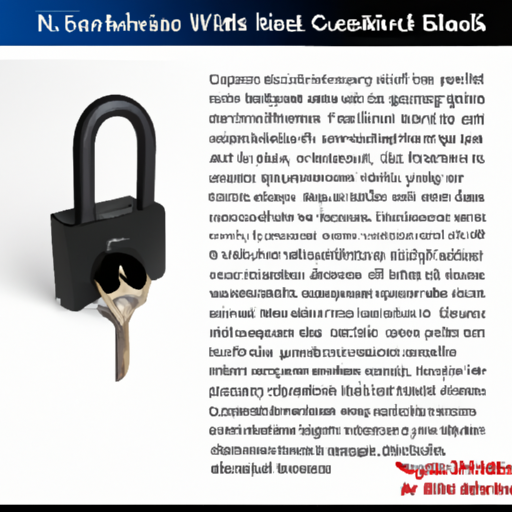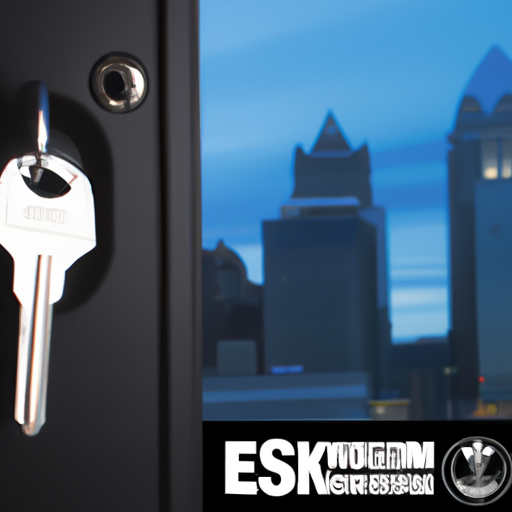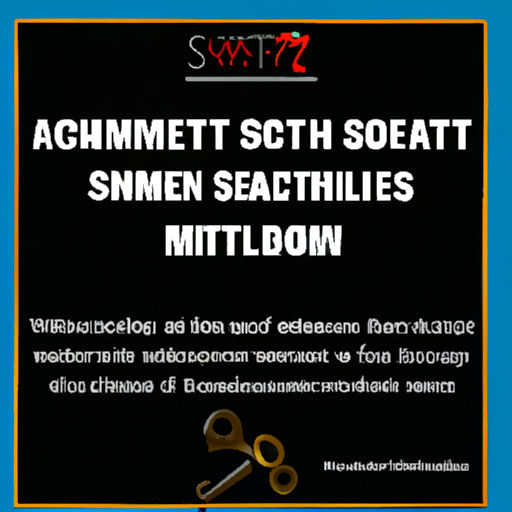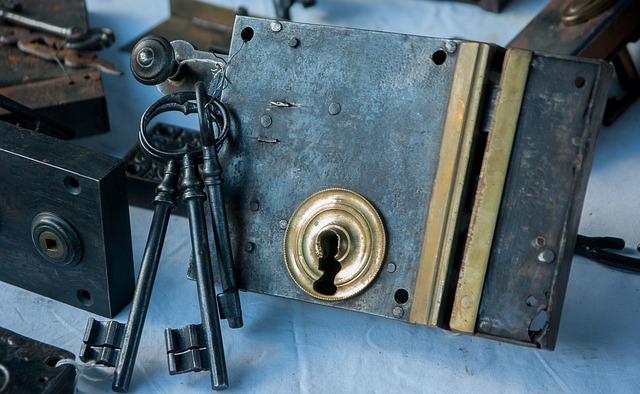
In this article, you will learn about the possibility of a locksmith being able to open a fingerprint door lock. Many people rely on fingerprint door locks for their security, but what happens if you forget your fingerprint or if the lock malfunctions? It is important to know if a locksmith can provide a solution in such situations.
The answer to the question is both yes and no. While it is true that a locksmith may be able to open a fingerprint door lock, it is not as straightforward as with traditional locks. Fingerprint door locks are designed to provide an extra layer of security and are more complex than regular locks. Therefore, opening them requires specialized knowledge and tools. It is always recommended to contact a professional locksmith who is experienced in handling fingerprint door locks in case you find yourself locked out or facing any issues with the lock.
Understanding Fingerprint Door Locks
What Are Fingerprint Door Locks?
Fingerprint door locks are a type of biometric security system that uses an individual’s unique fingerprint to grant access to a building or room. Instead of traditional keys or electronic key cards, these locks rely on the physical characteristics of a person’s fingerprint to verify their identity.
How Do Fingerprint Door Locks Work?
Fingerprint door locks work by using an optical or capacitive sensor to scan and capture the unique pattern of ridges and valleys on a person’s fingertip. This information is then encrypted and stored within the lock’s memory. When a person wants to gain entry, they simply place their finger on the sensor, and the lock compares the scanned fingerprint with the stored data. If there is a match, the lock mechanism is activated and the door unlocks.
Advantages of Fingerprint Door Locks
Fingerprint door locks offer several advantages over traditional lock systems. Firstly, they eliminate the need for physical keys, which can be easily lost or stolen. This increases security, as fingerprints cannot be duplicated like keys can. Additionally, fingerprint door locks provide convenience, as there is no need to remember or carry multiple keys or key cards. They are also durable and resistant to wear and tear, ensuring long-lasting performance.
The Role of a Locksmith
What Does a Locksmith Do?
A locksmith is a skilled professional who specializes in the installation, repair, and maintenance of locks and security systems. Their main role is to ensure the security and safety of individuals and their property by providing lock-related services. In the context of fingerprint door locks, locksmiths play a crucial role in unlocking and addressing any issues related to these advanced security systems.
Skills and Training of a Locksmith
To become a locksmith, one needs to undergo proper training and acquire the necessary skills. Locksmiths are knowledgeable about different types of locks, including fingerprint door locks, and they possess the expertise to troubleshoot and resolve any problems that may arise. They are also trained in various techniques and methods used to open a lock without causing damage.
Common Locksmith Services
Locksmiths offer a wide range of services, including lock installation, lock repair, lock replacement, key duplication, and emergency lockout assistance. They can also provide security consultations and recommend the most suitable locks for specific needs and requirements. When it comes to fingerprint door locks, locksmiths can assist with unlocking them in certain situations.
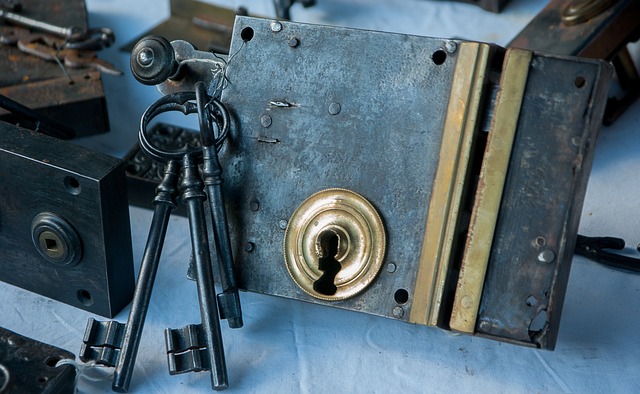
Unlocking Fingerprint Door Locks
Traditional Techniques Used by Locksmiths
Locksmiths employ various techniques to unlock fingerprint door locks. One common method is picking the lock using specialized tools. This involves manipulating the internal mechanism of the lock to release the bolt and unlock the door. Another technique is bypassing the lock altogether by removing the lock cylinder or disassembling the lock to gain access.
Potential Challenges in Unlocking Fingerprint Door Locks
Unlocking fingerprint door locks can pose challenges for locksmiths due to their advanced technology and security features. These locks are specifically designed to be resistant to traditional lock picking tools and techniques. Additionally, fingerprint door locks may have backup security measures, such as alarms or intrusion detection systems, that can be triggered if unauthorized attempts are made to unlock them.
Specialized Tools and Methods for Unlocking
To overcome the challenges presented by fingerprint door locks, locksmiths may employ specialized tools and methods. These tools are designed specifically for bypassing or disabling the lock without causing damage. Advanced techniques, such as decoding the lock algorithm or using electronic bypass devices, may also be used depending on the specific lock model and manufacturer.
Legal and Ethical Considerations
Legal Limitations for Locksmiths
Locksmiths are bound by legal limitations when it comes to unlocking fingerprint door locks. They must ensure they have proper authorization or legal permission to perform any lock-related services, especially when it comes to high-security locks. A locksmith can open a fingerprint door lock only if they have the proper credentials and authorization from the owner or relevant authorities.
Ethical Guidelines in Locksmith Profession
Ethics play a crucial role in the locksmith profession. Locksmiths should prioritize the safety and security of their clients and their property. They must conduct themselves in a professional and responsible manner, ensuring confidentiality and respecting privacy. Locksmiths should also adhere to ethical guidelines set by professional organizations or associations.
Code of Conduct for Locksmiths
Locksmiths are expected to follow a code of conduct that governs their professional behavior. This code includes guidelines on integrity, honesty, fair pricing, and providing quality service. Additionally, locksmiths should keep their knowledge and skills up to date, as technology and security systems evolve continuously.
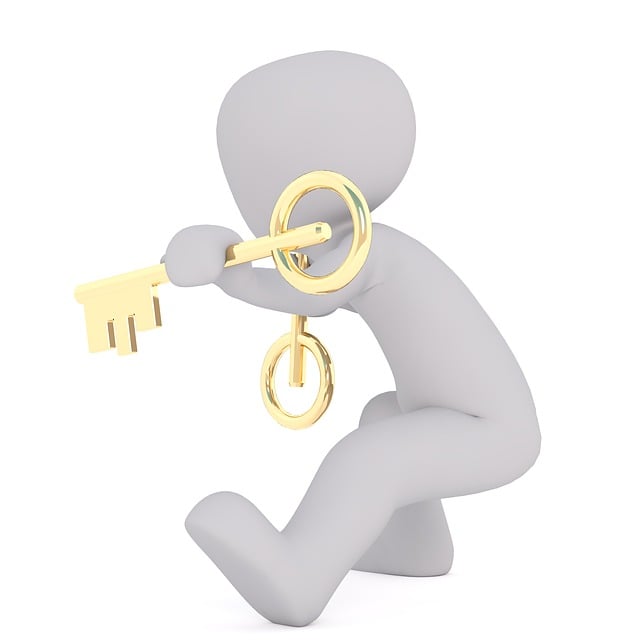
When Can a Locksmith Open a Fingerprint Door Lock?
Emergency Situations
Locksmiths can open fingerprint door locks in emergency situations, such as when someone is locked out of their property or there is a security breach. In these cases, locksmiths are authorized to use their expertise to gain access to the premises safely and promptly.
Authorized Access Requests
Locksmiths may also open fingerprint door locks when they receive authorized access requests from the owner or authorized personnel. This could be in situations where access needs to be granted to additional individuals or when a key or fingerprint is malfunctioning and needs to be replaced or tested.
Security Upgrades or Replacements
In instances where security upgrades or replacements are necessary, locksmiths can open fingerprint door locks to install new or upgraded systems. This ensures that the lock is properly installed and functioning correctly while maintaining the security of the premises.
Factors That Influence Successful Unlocking
Lock Model and Manufacturer
The lock model and manufacturer play a significant role in determining the success of unlocking a fingerprint door lock. Some manufacturers may have specific security features or encryption algorithms that make unlocking more challenging. Locksmiths with experience and knowledge of different lock models and manufacturers are more likely to be successful in unlocking these advanced locks.
Locksmith’s Expertise and Experience
The expertise and experience of the locksmith are crucial factors in successfully unlocking fingerprint door locks. Locksmiths who specialize in advanced security systems and possess the necessary skills and knowledge have a higher chance of successfully opening these locks without causing damage.
Condition and Maintenance of the Lock
The condition and maintenance of the fingerprint door lock also impact the ease of unlocking. Well-maintained locks that are properly serviced and regularly inspected are generally easier to open. Locks that are damaged, malfunctioning, or poorly maintained may pose greater challenges for locksmiths.

Potential Risks and Limitations in Unlocking
Damage to the Fingerprint Door Lock
While locksmiths strive to unlock fingerprint door locks without causing damage, there is always a risk of unintentional damage during the unlocking process. This can occur if the locksmith encounters unexpected difficulties or if the lock is not designed to be opened without specialized tools or techniques.
Invalidating Warranty or Insurance
Attempting to unlock a fingerprint door lock without proper authorization or by an unqualified individual, such as an uncertified locksmith, may result in the warranty or insurance being invalidated. It is important to ensure that authorized locksmiths with the necessary credentials are used to avoid any potential issues with warranty or insurance coverage.
Intrusion Detection Systems and Alarms
Fingerprint door locks often come equipped with intrusion detection systems and alarms. These security features are designed to prevent unauthorized access and alert the owner or relevant authorities in case of a break-in attempt. Locksmiths must be cautious when unlocking these locks to avoid triggering the alarms or surveillance systems.
Alternatives to Locksmith Services
Manufacturer Assistance and Support
In certain situations, seeking assistance and support directly from the lock manufacturer can be a viable alternative to locksmith services. Manufacturers have specialized knowledge of their own products and may provide specific instructions or solutions for unlocking their fingerprint door locks.
Professional Security System Installers
Professional security system installers possess expertise in installing and maintaining complex security systems, including fingerprint door locks. These professionals are trained to handle different types of security systems and may be able to unlock a fingerprint door lock if necessary.
Biometric Security Specialists
Biometric security specialists are professionals who specialize in biometric technology and its applications, including fingerprint door locks. These individuals have in-depth knowledge and understanding of the intricacies of biometric systems and can assist with unlocking fingerprint door locks that have encountered technical issues.
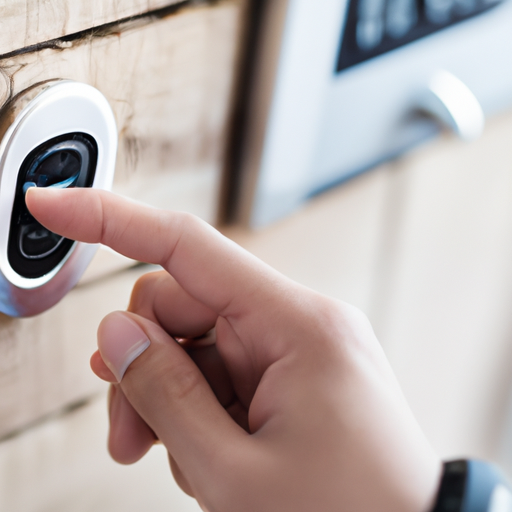
Choosing the Right Approach
Considerations Before Contacting a Locksmith
Before contacting a locksmith to unlock a fingerprint door lock, certain considerations should be made. It is important to assess the urgency of the situation, the level of security needed, and the potential risks involved. If there is a non-emergency situation, exploring alternative solutions or seeking manufacturer assistance may be the better choice.
Assessing Risks and Consequences
Unlocking a fingerprint door lock carries certain risks and consequences. It is essential to consider the potential damage to the lock, warranty or insurance implications, and the effectiveness of the intrusion detection systems. Understanding these factors helps in making an informed decision and minimizing any negative outcomes.
Exploring Available Resources
When facing challenges with a fingerprint door lock, it is crucial to explore available resources and seek help from professionals with the necessary expertise. This may involve contacting a certified locksmith, seeking assistance from the lock manufacturer, or consulting with a biometric security specialist. Utilizing the right resources increases the likelihood of successfully unlocking the lock without causing damage.
Conclusion
As technology advances, locksmiths face new challenges in unlocking and servicing modern security systems like fingerprint door locks. However, with the proper skills, training, and tools, locksmiths can open these locks in emergency situations, authorized access requests, or when performing security upgrades. It is essential to consider the legal and ethical aspects of locksmithing and to choose the right approach that balances security and convenience. The collaboration between locksmiths, manufacturers, and other security professionals is crucial in ensuring that individuals can access their properties safely and securely while maintaining the integrity of fingerprint door locks.

